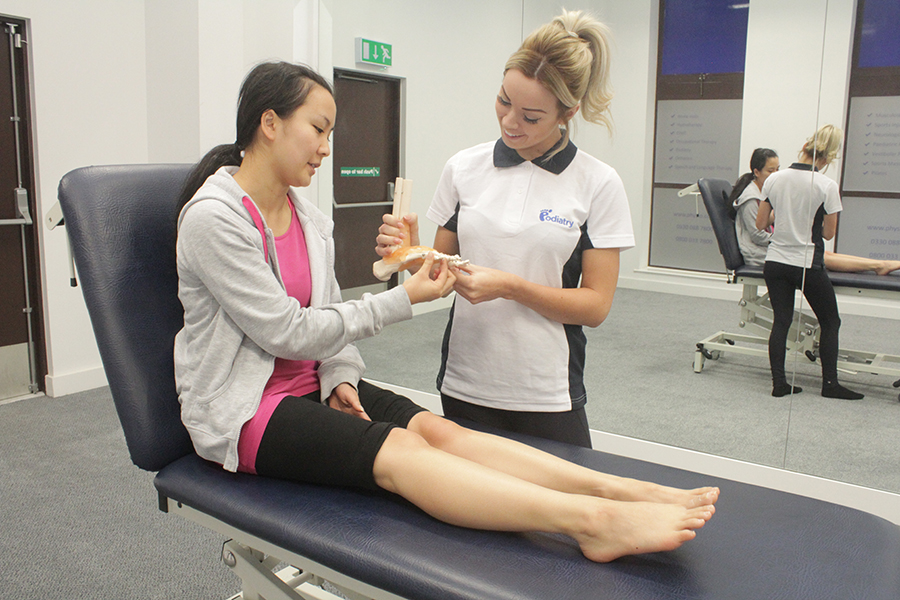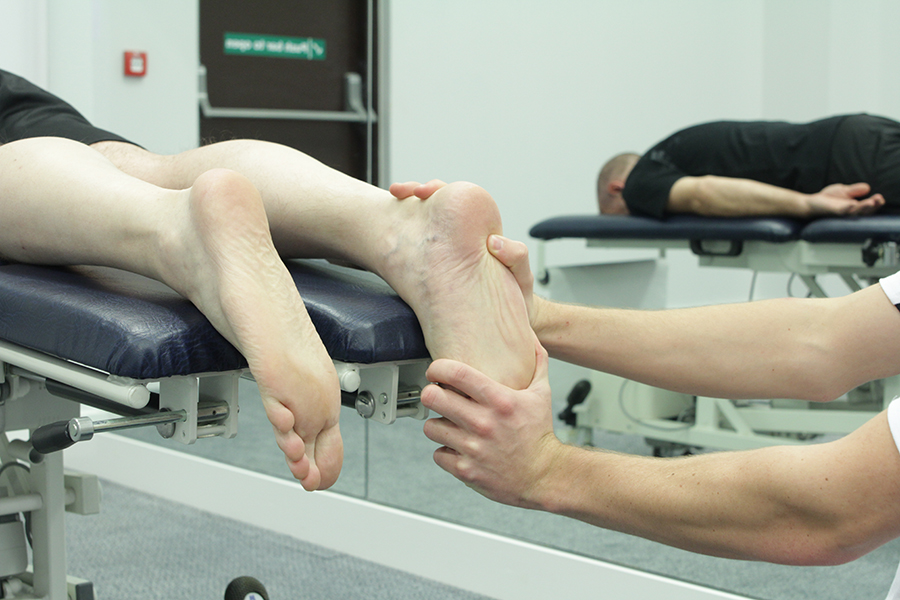Freiberg's infarction
Freiberg's infarction is a condition that occurs in childhood and adolescence which presents as pain and swelling at the head of the second metatarsal. If you think you have Freiberg's infarction a podiatrist can help you.
What is Freiberg's infarction?
Freiberg's infarction is an osteochondrosis of the second metatarsal head;
this is the toe next to the big toe. An osteochondrosis is the name given
to a group of conditions that affects bone growth in children and
teenagers, particularly those that are fast growing. Freiberg's infarction
describes an avascular necrosis (death of bone caused by a loss of blood
supply) of the growth centre of the fifth metatarsal (the metaphysis), this
is where the artery that supplies the metatarsal head is positioned. The
result is progressive flattening and collapse of the second metatarsal
head.
The evidence of a Freiberg's infarction can sometimes take many years to
present, in these patient's the pain experienced is due to arthritic
changes as a result of the infarction. Typically, these people will
remember having an episode of foot pain as a youngster.
Freiberg's infarction is therefore a condition found in children and
teenagers, it is more common in teenage girls, however, boys are also
affected. Freiberg's infarction is defined as death of bone at the second
metatarsal head due to a lack of blood supply.
What causes Freiberg's infarction?
No one knows the exact cause of Freiberg's infarction; however, the following have been attributed to its development:
- Trauma
- Having a long second metatarsal
- Growth spurts
- Repetitive stress (e.g. running)

What are the signs and symptoms of Freiberg's infarction?
The signs and symptoms of Freiberg's infarction may include:
- Pain at the second metatarsal head when palpated
- Dull pain when walking or upon activity
- Swelling
- Limping
- Callus beneath the second metatarsal head (under the ball of the foot)
How is Freiberg's infarction diagnosed?
To confirm the diagnosis of Freiberg's infarction an X ray is often necessary. However, diagnosis can be made based on the signs and physical symptoms as well as a thorough medical and social history.
Benefits of podiatry for Freiberg's infarction
Chiropody.co.uk can help you if you have Freiberg's infarction. The following is a list of benefits that can be expected following treatment for Freiberg's infarction:
- Reduction in pain
- Decrease in inflammation
- Improved foot function
- Removal of any skin callous present
What would podiatry for Freiberg's infarction involve?
Your podiatrist will begin by obtaining a thorough medical and social history. The podiatrist will then examine the area and make a diagnosis based on the physical signs and symptoms; they will then devise a treatment plan specific to you. Treatment for Freiberg's infarction may include:
- Rest
- Orthoses
- Steroid injection
- Footwear review
- Surgery

Summary
Freiberg's infarction is a condition that affects the second metatarsal
head. Damage to the head of the second metatarsal occurs due to a loss of
blood supply to the bone; this is called avascular necrosis. No one knows
the exact cause of Freiberg's infarction but a number of factors are
thought to contribute to its development, for example; trauma, an
extra-long second metatarsal, growth spurts and repetitive stress.
Freiberg's occurs in childhood and adolescence and is more common in girls,
however the evidence of damage caused by Freiberg's may present much later,
and patient's may experience pain due to arthritic changes. A podiatrist
can help you if you have Freiberg's infarction, they will assess you and
explain any treatment options with you.
To arrange an assessment with one our podiatrists please email office@chiropody.co.uk or call 0330 088 4222.
Save 5% by booking an appointment online.



We work with:

Individuals

Organisations

Health professionals
Get in Touch!
0330 088 4222
If you would like to speak to one of our specialists then please complete this form.
We are open 7 days a week








